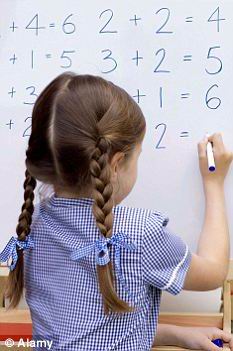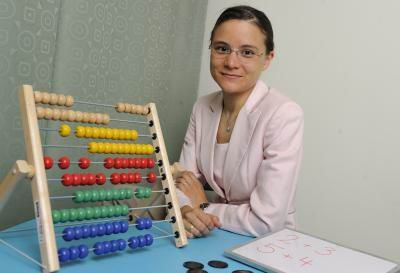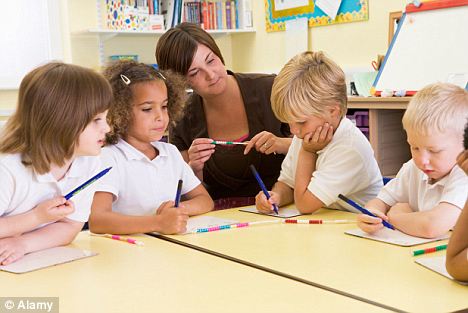
生来就是天才吗?一项新的研究表明天生的数字感和数学能力有关

领导这项研究的美国约翰·霍普金斯大学的研究员梅利莎·利伯蒂
你可能习惯认为有些孩子生来就具有某种天赋,如音乐天赋、艺术天赋或是运动天赋,但是你是否想过有人天生就在数学方面很擅长呢?最近的一项科研结果显示答案是肯定的。
据英国《每日邮报》网站8月10日报道,这项研究是由美国约翰霍普金斯大学的心理学家组成的小组进行的,参加者为200名平均年龄为4岁的儿童,测验方式是要求这些儿童完成一些测试数字感、数学能力以及语言能力的任务。
例如在数字感的测试中,研究人员让孩子们观察电脑屏幕上闪烁的蓝色和黄色圆点群,并问其哪种颜色的圆点数量最多。因为屏幕上的圆点闪烁速度较快而且大多数孩子还不能熟练数数。孩子们通过比较后口头告诉测试人员结果即可。
通过这些测试这项研究的领导者梅利莎 利伯蒂和她的同事发现,圆点测试成绩突出的孩子在其它测试中也表现出色,学龄前儿童的数学能力就与他们天生的数字感有着密切的联系。
虽然此前对青少年的研究已经证实“近似数字系统”与数学能力之间存在联系,不过这次的研究首次确定数字感对尚无能力接受正式数学教育孩子们的重要作用。
“与之前那些研究不同的是,此项研究表明数字感和数学能力之间的关联在孩子们接受正式数学教学之前就已经显现出来。这种联系是非常重要和有趣的,因为我们相信数字感是普遍存在的,然而数学能力被认为在很大程度上取决于文化、语言、需经过许多年才能学会的,所以两者之间的联系使我们思考,是否可以通过训练孩子们的数字感来提高他们未来的数学能力,”利伯蒂说。
生物探索推荐英文原文报道:
Can't add up? We are either born with a mathematical brain or not
If you struggle with figures, you were probably born that way, research has suggested.
Being good at mathematics may be entirely pre-destined – you either have it or you don’t.
And those who find the numbers never add up shouldn’t feel too dim – mathematical talent does not appear to be linked to all-round intelligence.
Previous research has indicated that ‘number sense’ is basic to humans.
We use it to estimate such things as the number of seats in a cinema or crowd sizes.
U.S. psychologists at Johns Hopkins University in Baltimore made their finding after testing children too young to have been taught mathematics.
During the study, 200 four-year-olds viewed flashing groups of blue and yellow dots on a computer screen and were asked which colour was shown the most.
The children then had to count items on a page, determine which of two numbers was greater or lesser, as well as read numbers.
They were also tested on calculation skills, such as multiplication. The participants’ parents were then asked about their child’s vocabulary.
The verbal test was done because language and maths abilities are thought to be linked through general intelligence.
The researchers wanted to be sure success in maths was not part of an ability to perform better in all sorts of tasks or to some children feeling more comfortable being tested than others.
The results, published in the journal Developmental Science, showed that children who got the best score in the dots test were also the most competent at the maths tests.
Dr Melissa Libertus, who led the study, said: ‘Previous studies testing older children left open the possibility that maths lessons determined number sense.

Nature or nurture? Children in a maths lesson. Researchers now want to find out whether a child's 'number sense' can be improved with the correct training.
‘In other words, some children looked like they had better number sense simply because they had better maths instruction.
‘Unlike those studies, this one shows that the link between number sense and maths ability is already present before the beginning of formal maths instruction.
‘One of the most important questions is whether we can train a child’s number sense to improving his future maths ability.’







